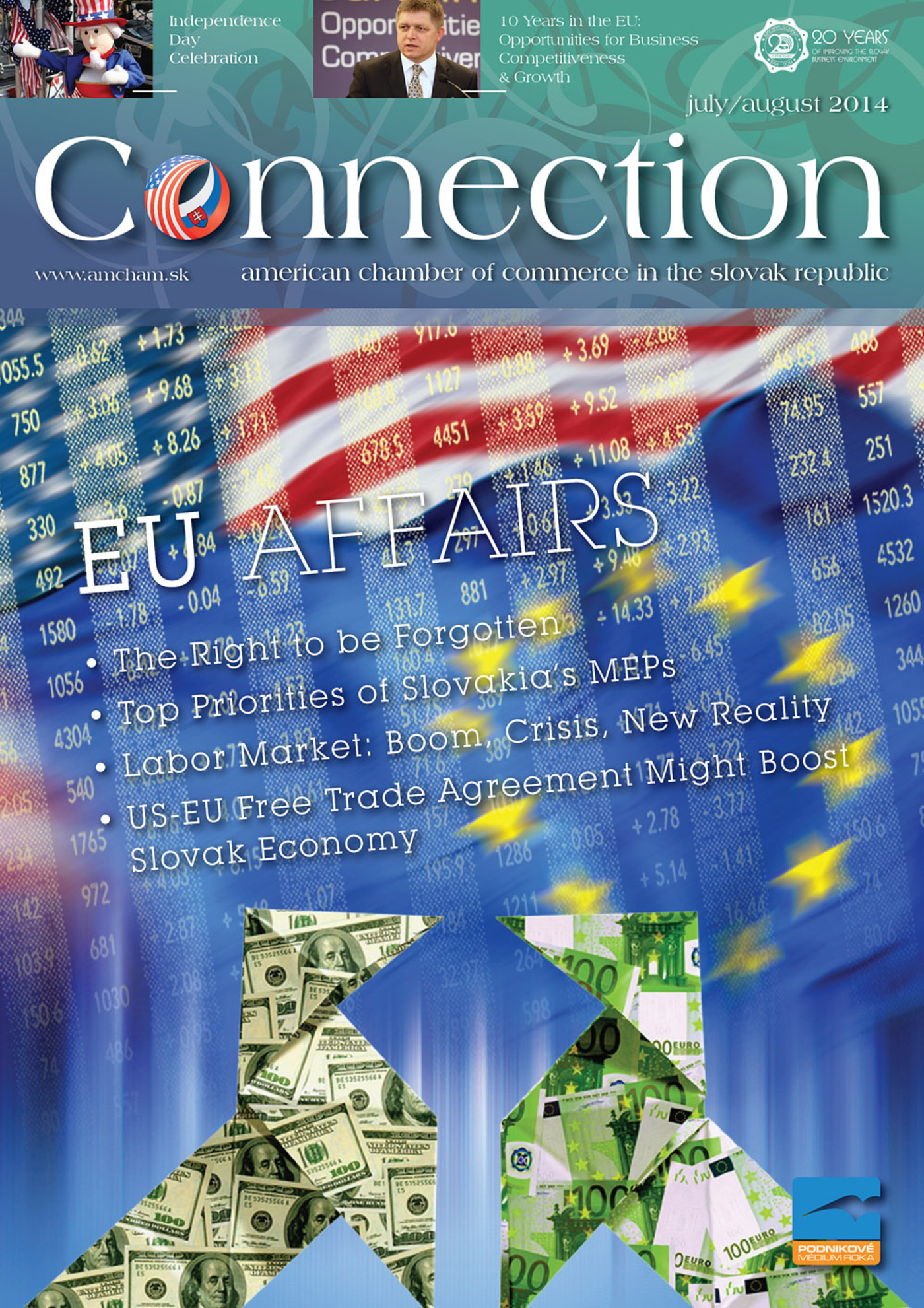Let me share some of our views on how to achieve them. We see a number of areas which can contribute to both a healthy investment climate and the economic wellbeing of the EU. Firstly, by means of a thorough fight against tax fraud, tax evasion and aggressive tax optimization. We also intend to put significant efforts into supporting small and medium sized enterprises (SMEs), especially start-ups. In this area, we plan to improve the use of structural funds. Moreover, Slovakia is a pioneer in this area by introducing Slovak Investment Holding, a platform to leverage EU funds with private sector investments to finance SMEs.
A resilient Economic and Monetary Union (EMU) will also help the EU to regain its competitiveness. The EU will therefore continue in completing the banking union, which provides stability to financial markets. But a deepening of EMU will have to go beyond the banking union. We will need to focus on the coordination of economic policies within the Union, i.e. how to support the necessary structural reforms.
Further integration of the single market is essential for providing a catalyst for growth. In this area, we see potential in developing the digital market, reflected in the program of our current Presidency of the Visegrad group.
External trade is another important source of growth. Forging a stronger alliance between the EU and the United States was always of strategic importance, and will continue to be among the top priorities of the Union. As an export oriented country, we uphold development of the partnership between the EU and the United States, which should result in an agreement on the Transatlantic Trade and Investment Partnership.
Energy and climate change policies have serious implications for competitiveness and growth. That is why they are of particular importance to us. Over the last year, they have strongly resonated for two reasons: the proposal of the European Commission on climate and energy policy after 2020, and the crisis in Ukraine. EU climate policy needs to have a realistic balance between ambitious environmental goals and its effect on the economic performance of Member States. Making the economy more environmentally friendly should not come at the expense of affordable energy prices for citizens and businesses. EU energy policy needs to respect the specificities of Member States, and ensure energy security through diversification of energy routes and sources.
The last area, but by no means the least important, is the unacceptably high level of unemployment, in particular amongst the youth, which remains a big issue within Europe, including in Slovakia. We intend to explore new ways to use existing European instruments to lower youth unemployment rates. Likewise, we recognize the important role of educational reforms that could achieve a more successful transition from the schooling system to the labor market.
The EU has more important challenges to tackle than ever before. Finding the right answers and setting the right polices within the EU is crucial. And there is another good reason for that from a Slovak perspective – the first Presidency of the Council of the European Union in two years’ time.
Peter Javorčík, State Secretary of the Ministry of Foreign and European Affairs of the Slovak Republic



Follow us